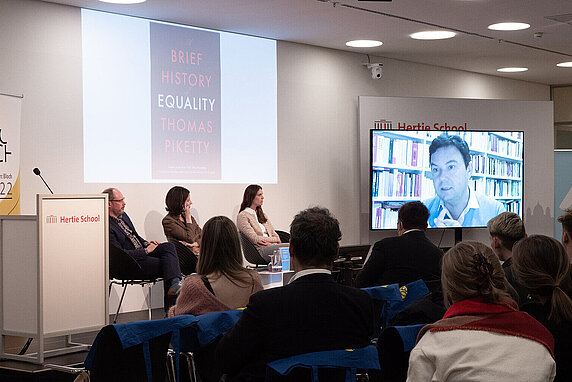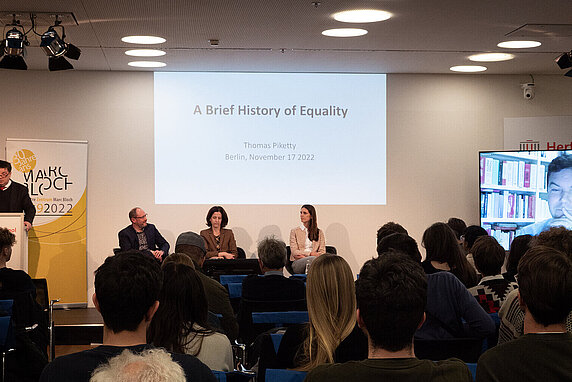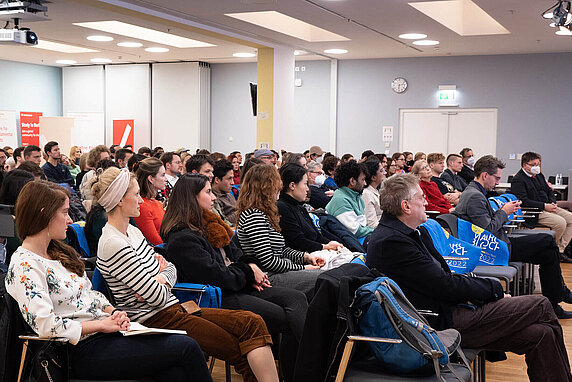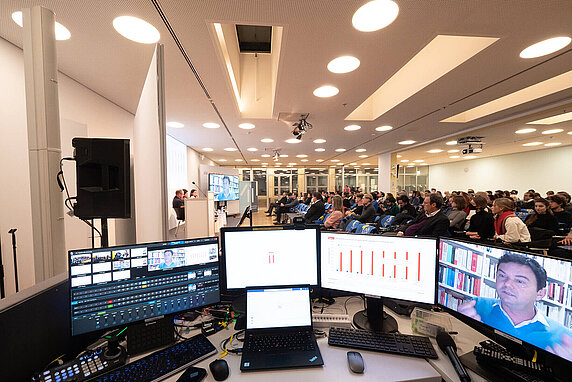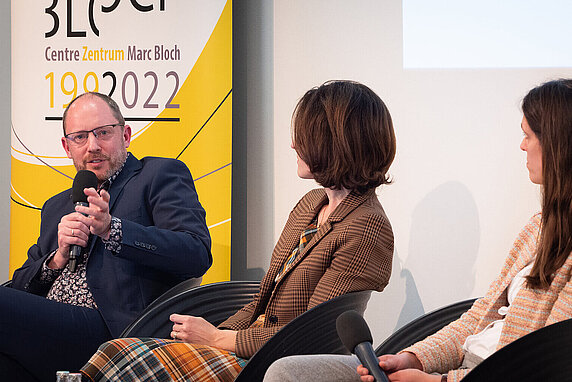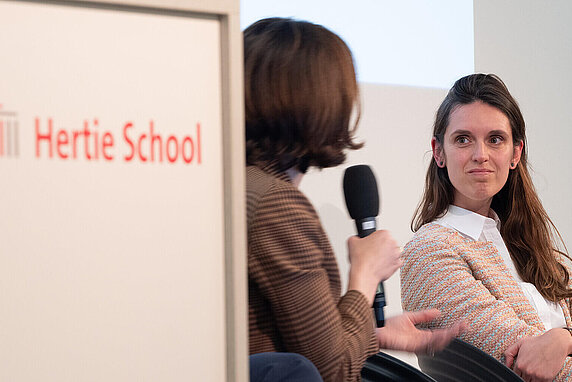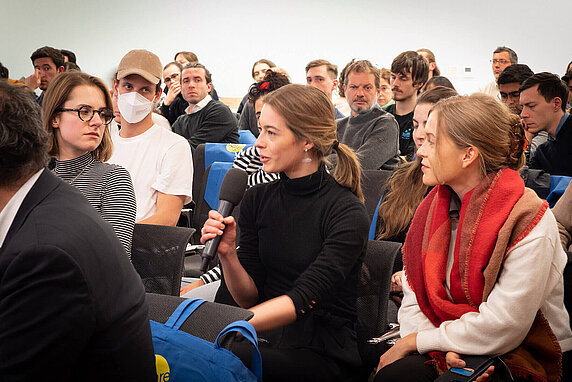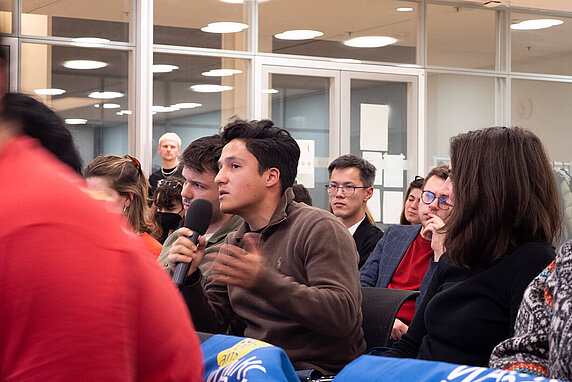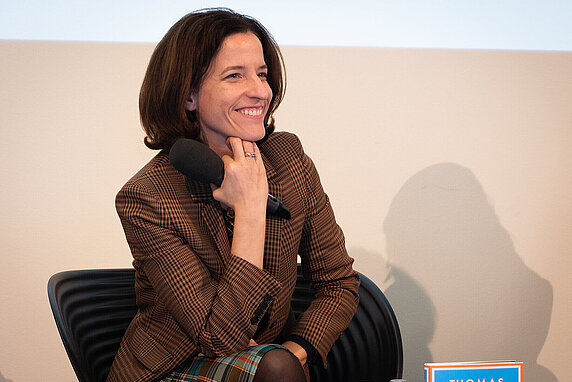Prof. Thomas Piketty shares insights from his latest book A Brief History of Equality.
Numerous crises – the consequences of climate change, the COVID-19 pandemic and the war in Ukraine – have brought the question of redistributive justice back to the fore. On 17 November, the Hertie School hosted a discussion about inequality together with experts Thomas Piketty, Professor at the Paris School of Economics/EHESS, Dr Charlotte Bartels, Postdoctoral Researcher at the German Institute for Economic Research, and Nikolaus Wolf, Professor at the Humboldt University of Berlin. Prof. Cornelia Woll, President of the Hertie School, moderated the discussion. The event celebrated the 30th anniversary of partner institution Centre Marc Bloch as well as Piketty’s new book A Brief History of Equality, released earlier this year.
The panel was kicked off by President Woll and Centre Marc Bloch Director Dr Jakob Vogel. President Woll commended Piketty’s new book on its inclusion of data from the Global South, often a grey area in international comparisons. For Vogel, the discussion was the continuation of a conversation started with late Hertie School Professor and President Henrik Enderlein.
Bringing 20th social democracy into the 21st century
During his book presentation, Piketty pointed out that while 20th-century social democratic policies were an achievement for the middle classes – approximately 40% of the population – not much has improved for the lower 50%. He also noted that despite improvements, women still lag far behind men in the distribution of wealth. Turning his attention to climate change, he stressed that the richest 10% of the population contribute the lion’s share of carbon emissions while the poorest produce only a small proportion. For this reason, he advocated progressive carbon taxation to bring down energy consumption, arguing that “a broad-based solution like a big flat carbon tax is simply not going to work.”
Taking a look back, all three panellists agreed on the need to re-examine and revise the 20th-century model of social democracy. Wolf in particular pointed out that the policies of the Blaire and Schröder governments had led in the wrong direction, while Bartels noted that we need to pay more attention to wealth transmitted from young to old. Both stressed that policies have to consider regional inequality. Piketty in particular criticised that in the European Union, capital flows were opened up in the early 1990s without any political mechanism to track them. In his view, this created “a system in which you can get rich by using the public infrastructure of a country and then sell your wealth in any jurisdiction you want.”
Optimism about the future of redistribution
When asked how global warming would affect inequality, Piketty claimed that when the effects of climate change become dramatic enough, people’s views on the economic system will inevitably change. He was also optimistic about the future of equality in general. In his opinion, nationalist policies will not be successful in the long run because they will not resolve the crises facing us. “If you want to reach social consensus, you have to reduce social inequality,” he stressed.
The expert on economic policy closed the discussion with the argument that if a handful of EU countries take action to create more progressive policies, this could act as a catalyst for other countries. “We can’t count on convincing wealthy people to accept the loss of their privileges,” he said. “The key is to convince a majority that there is a new way to do things – and that it can be done.”
Watch our live recording of the panel discussion with Thomas Piketty below.

